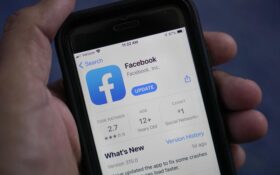The party could be over for social media giants – because Republicans and Democrats alike are trying to chip away at special protections given to Big Tech via Section 230 of the Communications Decency Act.
“Big Tech can no longer be allowed to hide behind Section 230,” Rep. Cathy McMorris Rodgers, R-Wa., who is working on one such initiative, told Fox News. “It’s time to expose Big Tech’s bias and make sure they treat constitutionally protected speech fairly.”
Section 230, in short, gives social media companies some degree of immunity from content posted on their websites.
Essentially, if you follow bad advice that someone posted on Twitter or Facebook, you can’t sue Twitter or Facebook over it.
Former President Donald Trump repeatedly railed against Section 230, especially after he was banned from both Facebook and Twitter, and many on the right have called out the companies for blocking political speech.
His rivals on the left have railed against the same rule, albeit for very different reasons: They believe removing Section 230 will force the companies to be more aggressive about policing what they see as misinformation and disinformation.
“Section 230 should be revoked, immediately,” President Joe Biden said in 2020. “It should be revoked because it is not merely an internet company. It is propagating falsehoods they know to be false.”
Now, Republicans in the House and Democrats in the Senate have each introduced their own versions of Section 230 reform.
Draft legislation from Rep. Rogers and Rep. Jim Jordan, R-Ohio, would not only strip away Section 230 protections, but would also require big tech companies to inform the Federal Trade Commission of decisions they make on content moderation, Fox Business reported.
That, the two said, would put those companies “under new obligations that will hold them more accountable for censoring Americans.”
The bill would also create a “Section 230A,” in which certain Big Tech firms would be responsible for any content they “amplify, promote or suggest” on their platforms, and limit their ability to moderate content only to speech not protected by the First Amendment.
Separately, in the Senate, two Democrats are proposing their own end to some 230 protections, but in a much more targeted away.
Sen. Amy Klobuchar, Minn., and Sen. Ben Ray Luján, N.M., would remove health information from the rules, meaning Big Tech would have to more aggressively act on posts related to health.
More specifically, this seems aimed at stifling online posts related to the coronavirus pandemic and debates over what is and isn’t working.
“To the extent that people want to force social media companies to leave certain speech up, or to boost certain content, or ensure any individual’s continuing access to a platform, their problem isn’t Section 230,” Mary Anne Franks, professor of law at the University of Miami and president of the Cyber Civil Rights Initiative told the Columbia Journalism Review. “It’s the First Amendment.”
Mike Masnick of the Techdirt website agreed, telling CJR that “nearly all misinformation is protected by the First Amendment” even if people don’t like it.
“So even if Facebook weren’t protected by Section 230, what would people even sue over? Any lawsuit would fail,” he said. “It would just be a lot more expensive and wasteful of the court’s time and resources in the process.”
But with tempers flaring on the left and right, it seems lawmakers are willing to take that chance and see what happens – if, that is, they can actually agree on how to remove or at least reform Section 230.
— Walter W. Murray is a reporter for The Horn News. He is an outspoken conservative and a survival expert.
